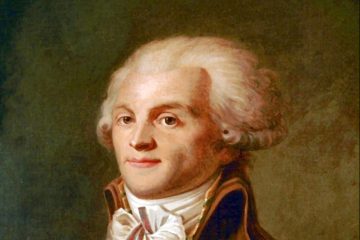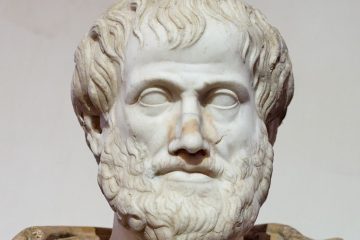This post is a roughly transcribed summary of my notes hand-written in the margins of my copy of Plato, Complete Works edited by John Cooper (Princeton University). Like all my posts, this is produced only with the intention to help my own memory, but if it is helpful for anyone else, that would of course make me happy
Theaetetus Summary
This dialogue is most significant in being the only one that takes the question “What is knowledge?” as its central question. The inquiry in the dialogue ends inconclusively, like the “Socratic” dialogues… but it is not considered as such; in this dialogue Socrates speaks of himself with the midwife analogy. Theaetetus (son of Euphronius of Sunium) was a famous mathematician who worked with Plato in the Academy until his early death in military service (369 BC), shortly before Aristotle-bae joined the Academy (367 BC).
The dialogue quickly rejects Definition 0 and explores three successive definitions of knowledge:
Definition 0: 146d
Theaetetus: I think that the things Theodorus teaches are knowledge–I mean geometry and the subjects you enumerated just now.
Socrates quickly rejects this shitty Meno-like swarm of an answer. 146d-147c
What sort of definition we are looking for is illustrated well by:
Geometric Square Analogy (147d-148b)
Theatetus discusses Theodorus’ demonstration using diagrams of square numbers (which the Greeks called powers) and his thoughts upon listening to this demonstration: “…since the powers were turning out to be unlimited in number, we might try to collect the powers in question under one term, which would apply to them all.” Theaetetus explains the classification of square vs. oblong numbers.
Socrates asking for a definition in the same sense as Theaetetus presens a definition for square and oblong numbers suggests that items not necessarily within ‘mathematics’ (e.g. knowledge) are structurally similar in account.
Midwife Analogy (149a-151d, 157d, )
149a: Socrates: “…my being the son of a good hefty midwife, Phaenarete?”, which means ‘she who brings virtue to light’. Socrates delivers “men that are young and generous of spirit, all that have any beauty” 210d.
- those past child-bearing take it up (149b)
- requires experience
- “Artemis… didn’t entrust the duties of midwifery to barren women, because human nature is too weak to acquire skill where it has no experience.” (149c)
- have the power to control the outcome && have tools to bring about the outcome of choice
- “Then it is the midwives who have the power to bring on the pains, and also, if they think fit, to relieve them; they do it by the use of simple drugs, and by singing incantations. In difficult cases, too, they can bring about the birth; or if they consider it advisable, they can promote a miscarriage.” (149d)
- an analogy of how education may work–one may intentionally or not lead students astray or lead them to truth, there are many ways to conduct effective or ineffective teaching, etc.
- clever match-makers / know which kinds of couples produce the best children (149d)
- interesting in light of the Republic
Note to Self: think more about these characteristics in relation to Socrates’ exposition of why he is a ‘midwife’ from 150b – 151d.
Fun Fact: 150a: eugenics brought up as unlawful & unscientific, but ‘true midwife’ should be able to do this well, Socrates claims.
Definition 1: 151e-160e
knowledge is perception (αἴσθησις)
Socrates’ interprets Theaeatetus’ proposal as that of Protagoras’ relativism, i.e. “Man is the measure of all things: of the things which are, that they are, and of the things which are not, that they are not.” (152a). Socrates equating Theaetetus’ proposal with Protagoras’ position seems unfair; Socrates further places Heraclitus, Empedocles, Epicharmus, Homer in the same camp.
- “all the wise men of the past” think: “the theory that there is nothing which in itself is just one thing: nothing which you could rightly call anything or any kind of thing…. nothing is one or anything or any kind of thing. What is really true, is this: the things of which we naturally say that there ‘are’, are in process of coming to be, as the result of movement and change and blending with one another. We are wrong when we say that they ‘are’, since nothing ever is, but everything is coming to be.” (152de).
In opposition is Parmenides, who “held that the only reality is one single, completely changeless thing” 183e (p.170, footnote 7, Cooper).
Cold Wind Example 152b
The same wind is blowing: one perceives the wind to be cold, another perceives the wind to be not cold… the wind itself, by itself is neither cold nor not cold; it does not make sense to speak of ‘the wind itself’.
Being & Becoming = a product of motion 153c-157c
“by learning and study, which are motions… the soul gains knowledge and is preserved and becomes a better thing / …the soul gains and preserves knowledge. Whereas in a state of rest, that is, when it will not study or learn, it not only fails to acquire knowledge but forgets what it has already learned.” 153c.
Fun Fact: 153d: reference to the Golden Cord from the Iliad, VIII. 17-27, where “Zeus boasts that if he pulled on a golden cord let down from from heaven, he could haul up earth, sea and all, bind the cord fast round the peak of Mt. Olympus, and leave the lot dangling in mid-air.” (p.171, footnote 10 Cooper) > This reminds me a lot of 蜘蛛の糸 by 芥川龍之介 (1892-1927).
153e-4a: If “there is nothing which is, in itself, one thing”, then color must come into being when it impacts a particular person’s eye upon transmission of the appropriate motion–each perception of color will be private. Thus, not only does a quality like color not make sense as existing independently in time and space, it also does not have any independent existence whatsoever. This is true of not only color but also other qualities, e.g. size, warmth, whiteness…. and thus we have the:
Dice Examples 154c
We have 6 dice. We place 4 dice beside the 6 dice. Well, the 6 dice are more than the 4. Now let’s have 12 dice. Well, the 6 dice are less than the 12. The 6 dice are both ‘more’ and ‘less’… did we change the 6 dice by putting 12 beside them, from being ‘more’ to being ‘less’?
I.e. Changes in a particular object’s qualities are not changes in that object rather, they are changes in our perceptions of it.
Socrates wants to take the following three things axiomatically:
- “nothing can possibly have become either greater or less, in bulk or in number, so long as it is equal to itself.” 155a
- “a thing to which nothing is added and from which nothing is taken away neither increases nor diminishes but remains equal.” 155a
- “it is impossible that a thing should ever be what it was not before without having become and without any process of becoming” 155b
1 & 2 reminds me of Euclid’s common notions, which make up #29-33 of the 33 axioms of Euclidean Geometry:
- Things which equal the same thing also equal one another.
- If equals are added to equals, then the wholes are equal.
- If equals are subtracted from equals, then the remainders are equal.
- Things which coincide with one another equal one another.
- The whole is greater than the part.
This seems particularly appropriate given that Theodorus is a famous geometer and Theaetetus his pupil.
Flux theory: Account of Perception 155c-157c
Notes to Self: Flesh out and revise this section later. Reminded me of the Timaeus.
Active & passive factors.
Concludes with: “all things become relatviely to something. The verb ‘to be’ must be totally abolished…. We ought, rather, to speak according to nature and refer to things as ‘becoming’, ‘being produced’, ‘passing away’, ‘changing’; for if you speak in such a way as to make things stand still, you will easily be refuted.” 157b
As an objection to this account, Socrates next discusses….
False Perceptions 157e
Dreams, insanity, other diseases, mishearing, misseeing, and other cases of misperceiving all produce false perceptions. In each of these cases, the perception that appears to an agent are not really.
“what evidence could we offer if we were asked whether in the present instance, at this moment, we are asleep and dreaming all our thoughts, or awake and talking to each other in real life.”
Answer: there is no such evidence that can be offered. So to the question, how can we know if it’s true or not, well, Protagoras / Heraclitus should answer something like, false is inapplicable here.
Socrates ill, Socrates well Example 159b
Socrates in bad health and Socrates in good health are different, and thus experience the taste of wine differently–more generally, there is never the same combination of percipient and perception, for every perception makes for a changed percipient.
Thus, X’s perception P cannot but be true for X, for P is by necessity peculiar to X…
Refutation of Definition 1: 160e-187a
We get some better and worse arguments.
Animal Perceptions 161c-d
Socrates basically says: haha why didn’t he start Truth with “pig is the measure…” instead of “man is the measure…”. The δυναμις of perception is shared with many other animals. Do they have knowledge? Shitty argument.
How could you charge your students? 161d-162a
Socrates basically says: haha if Protagoras’ relativism is right, how can he possibly proselytize his own views? How could he make other people pay to find out another person’s perceptions?
Gods' Perceptions 162c-d
Converse of animal perceptions: Socrates basically says haha if perceiving is all that we need to find truth, then we’re on the same pedestal as a god.
.
[I will finish the rest, soon!]
Foreign Languages 163b-c
Memory 163d-e
When we recall perceptions in our memory,
Shut Eye 163e-4
Do you not know things when you shut your eyes?
Socrates Notes Shitty Strawman Methodology 164c-e
Protagoras' Response to these 165e–168c
the Peritrope Objection 170a-171c
Benefits also Relative 171e-172b
a Digression 172c-177c
Future Judgments 177c-179b
Assertions, Impossible 179c-183c
Concepts Independent of the Senses 183e-186e
Definition 2: 187b
knowledge is true judgment
False Judgments Cannot Exist 187d-200c
Wax Analogy 191c-e, 193c-d, 194c-195a
An amazingly interesting account of the human soul / our modern conception of the brain. Plato introduces an analogy for neuroplasticity, differences in each person’s tabula rasa, etc.
Accidental True Judgments 201a-c
Definition 3: 201d
knowledge is true judgment with an account (λόγος)
The Dream of Socrates 201e-202c
Elements/Letters vs Complexes/Syllabues 202d-206b
Take #1 on λόγος: words 206d-e
Take #2 on λόγος: the parts 207a-208b
Take #3 on λόγος: differentiate by a σημεῖον 208c-210b
… and subsequently ends inconclusively.
Bibliography
Levett, M. J., and Myles Burnyeat. “Theaetetus.” Complete Works, edited by John M. Cooper, by Plato, Hackett, 1997, pp. 157–234.



